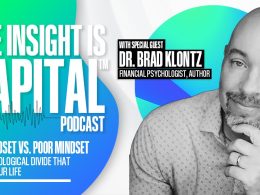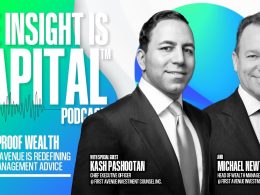What It Means for Retirement Plan Advisors
by Commonwealth Financial Network
 The ancient Greek philosopher Heraclitus famously professed that “change is the only constant in life.” Although there’s no way Heraclitus could have imagined this concept applying to something like saving for retirement, it most certainly it does.
The ancient Greek philosopher Heraclitus famously professed that “change is the only constant in life.” Although there’s no way Heraclitus could have imagined this concept applying to something like saving for retirement, it most certainly it does.
The U.S. retirement plan system continues to undergo a vast transformation, due in large part to regulatory pressures. The early months of 2019 saw the introduction of the SECURE Act. If carried to fruition (as is expected, given that it was passed by the House and has moved on to the Senate), this bipartisan legislation would accelerate the transformation of employer-sponsored retirement plans and provide several improvements for advisors, plan sponsors, and employees alike.
Let’s take a closer look at some key retirement-related provisions of the SECURE Act and what its passage by Congress would mean for your retirement plan business and the companies and participants you support.
Open MEPs permit unrelated small businesses to band together to form one retirement plan. (“Closed” MEPs allow only—you guessed it—related businesses. Think auto dealerships or law offices.) The ability for small companies to join forces for the purpose of offering a retirement plan would be hugely advantageous. Why? Because it allows those companies with small 401(k) plans (and, typically, lower plan assets) to have access to more attractive pricing, services, and features that are usually available only to 401(k) plans with greater assets.
MEPs don’t just represent an opportunity for businesses to streamline their benefits offering; there’s a business development opportunity for advisors, too. The retirement plan market is dominated by small retirement plans, which are the perfect match for the MEP model. In fact, 95 percent of defined contribution plans in the U.S. hold less than $10 million in plan assets. Even if you only dabble in 401(k) business, you probably have business owner clients or prospects whose plans are part of that 95 percent.
Plan-related business costs continue to be a top concern for plan sponsors, according to Fidelity Investments’ most recent Plan Sponsor Attitudes survey. This is another area where MEPs may be able to help. As more MEPs form, their purchasing power will increase, as will the competition in the market, which may drive costs down over time. In addition, MEPs provide great efficiencies for advisors because, like plan sponsors, they can enjoy economies of scale by tapping into a consistent service model, technology, and investment lineups.
The role employer-sponsored retirement plans play in helping Americans reach their savings goals is significant. Recent research suggests, however, that three-fourths of Americans with access to 401(k) plans are still not saving enough.
To work toward a solution to this problem, the SECURE Act includes a provision to raise the automatic deferral maximum for safe harbor plans from 10 percent to 15 percent. Increasing the cap provides incentive for business owners to nudge their employees to save early and often. You can help your plan sponsor clients stay ahead of the curve by encouraging them to add auto-enrollment or auto-escalate features to their plan’s design.
Current law states that employers may generally exclude part-time employees from participation in their company’s retirement plan. Under the SECURE Act, however, employers will need to offer a dual eligibility requirement, where employees can participate in the plan once they complete either of the following:
- One year of full-time service (more than 1,000 hours of work)
- Three consecutive years of service with at least 500 hours worked per year
This provision would drastically increase access to effective retirement savings vehicles for Americans, and it would do wonders to help long-term, dedicated part-time employees accumulate the savings they’ll need later in life.
In 1965, the average life expectancy in the U.S. was just over age 70. Today, the Department of Health & Human Services reports that Americans live to an average age of 78.6! Given the projection of longer life spans, Americans face an increased risk that they will outlive their hard-earned retirement savings.
The SECURE Act seeks to ensure that the assets retirement savers have accumulated will last throughout their retirement years by including the following provisions:
- Increase the age retirees must begin making RMDs from 70½ to 72
- Remove the prohibition on account owners making retirement contributions after age 70½
Allowing savers to put off taking RMDs for a bit longer and continue accumulating assets after reaching age 70½ provides a huge benefit to those who were late to the retirement savings game or who find themselves voluntarily working into their 70s. For advisors, the bill’s proposed changes could serve as a convenient lead-in to the health and wealth conversation, helping them stress the need for not only saving early and often, but for other key retirement planning considerations as well, such as long-term care and estate planning.
It’s clear that the lawmakers involved in forming the SECURE Act are laser-focused on improving the American retirement system. I encourage you to follow the news surrounding this legislation as it makes its way through Congress and beyond, as it will likely have a significant effect on your clients. Help them prepare for what may lie ahead by reviewing existing plan provisions and features and noting where enhancements or adjustments may be needed, should the legislation pass.
What are your thoughts on the SECURE Act? Which provision would do the most good for your plan sponsor clients and their participants? Where might there still be room for improvement? Please share below!
Commonwealth Financial Network is the nation’s largest privately held independent broker/dealer-RIA. This post originally appeared on Commonwealth Independent Advisor, the firm’s corporate blog.
Copyright © Commonwealth Financial Network
















